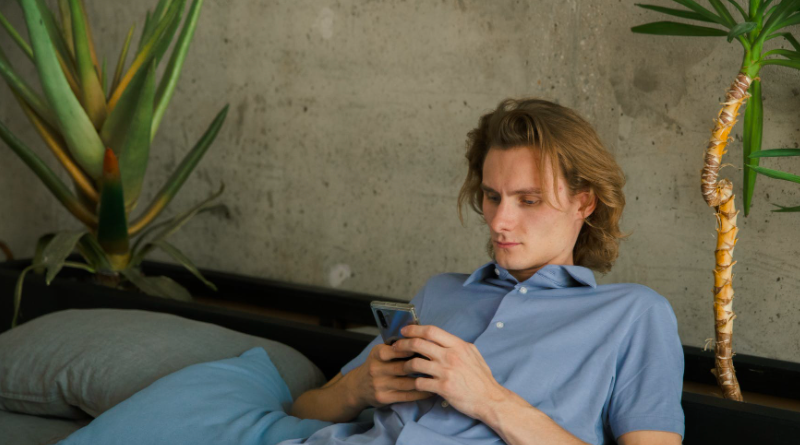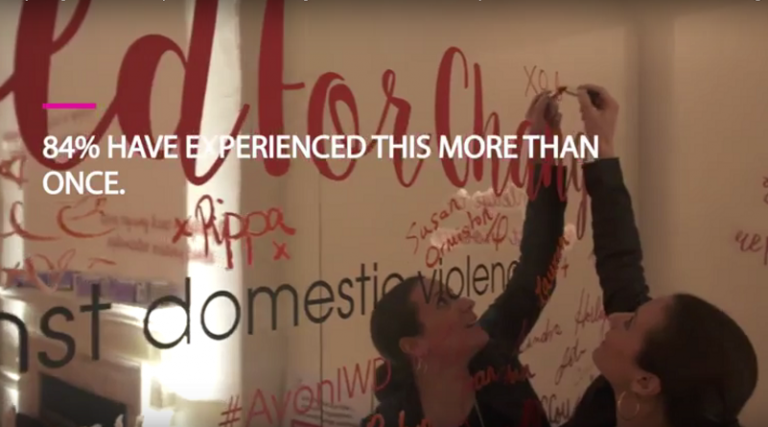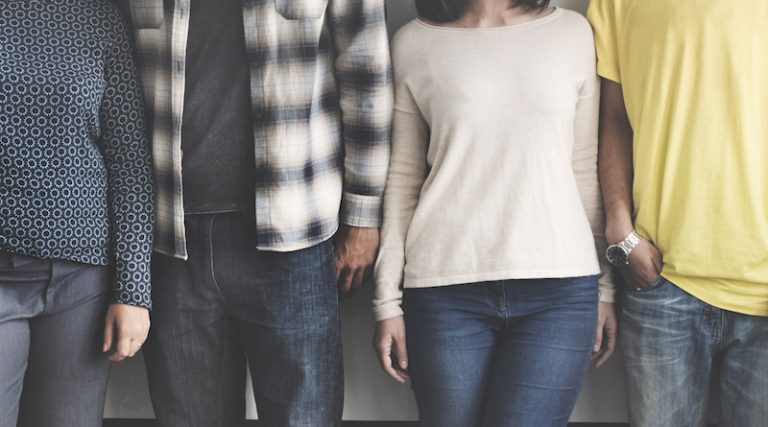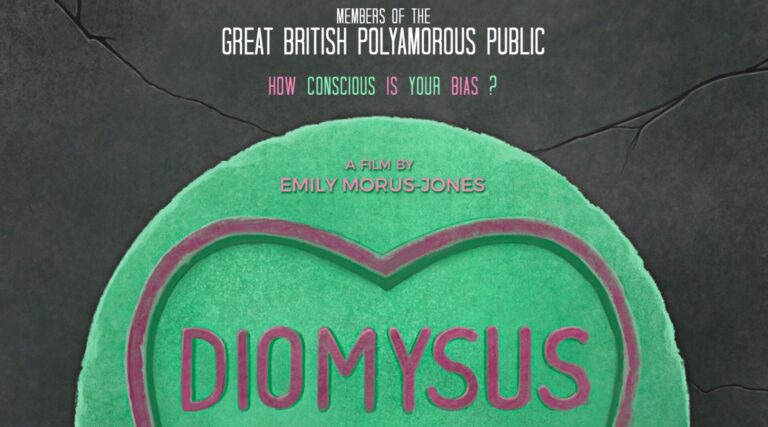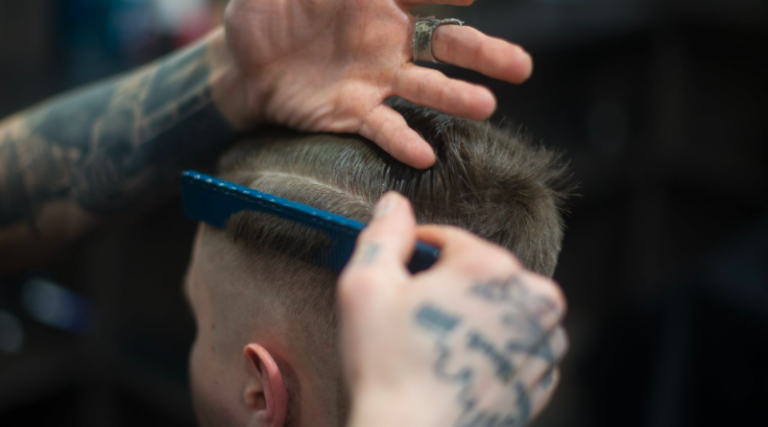Blog: Online dating with a hidden disability
Having a hidden disability makes online dating just that extra bit more complex
This content was originally part of our Pandemic support series: to address the chaos and uncertainty of the COVID-19 pandemic, and to support young people with navigating this difficult time.
Although many of us may feel we’re now in a post-pandemic era, this content will still be relevant to lots of people. There are still many people who rely on communicating, building relationships and accessing support online, whether they continue to shield from COVID-19, have long Covid, or have any other chronic illness that means they have to limit in-person social contact. There are still lots of reasons why we may need some extra support right now, and no one should feel excluded from society or unable to access the support they need.
Although it’s popular, online dating is also difficult. Communicating through a screen can feel impersonal, and ghosting is easier than ever. In the pandemic, it can be especially hard to establish a strong connection without meeting in person.
Having a hidden disability makes online dating just that extra bit more complex. One of the most daunting things I’ve found with online dating is deciding when to tell someone about my hidden disability.
I have a form of Muscular Dystrophy called Minicore Myopathy. From my pictures there are no obvious signs, yet I know it is an important part of my identity and I don’t like hiding it from people I’m interested in. While I’ve seen others use the blue wheelchair emoji in their Tinder bios, I never felt represented by this as I am not a wheelchair user. There are many of us in a similar position.
I’m certainly not ashamed of my disability, but telling someone I like about it has still been nerve-wracking. Worries such as ‘will they feel sorry for me?’ and ‘will they friendzone me?’ seem to take over, as I fear they won’t accept my disability the way I have. Responses to my past rambles about my disability have varied – from a pitiful ‘that’s so sad, I’m sorry’ to a rather indifferent ‘well you can still have sex, right?’ At least those two responses showed me which relationships weren’t worth pursuing.
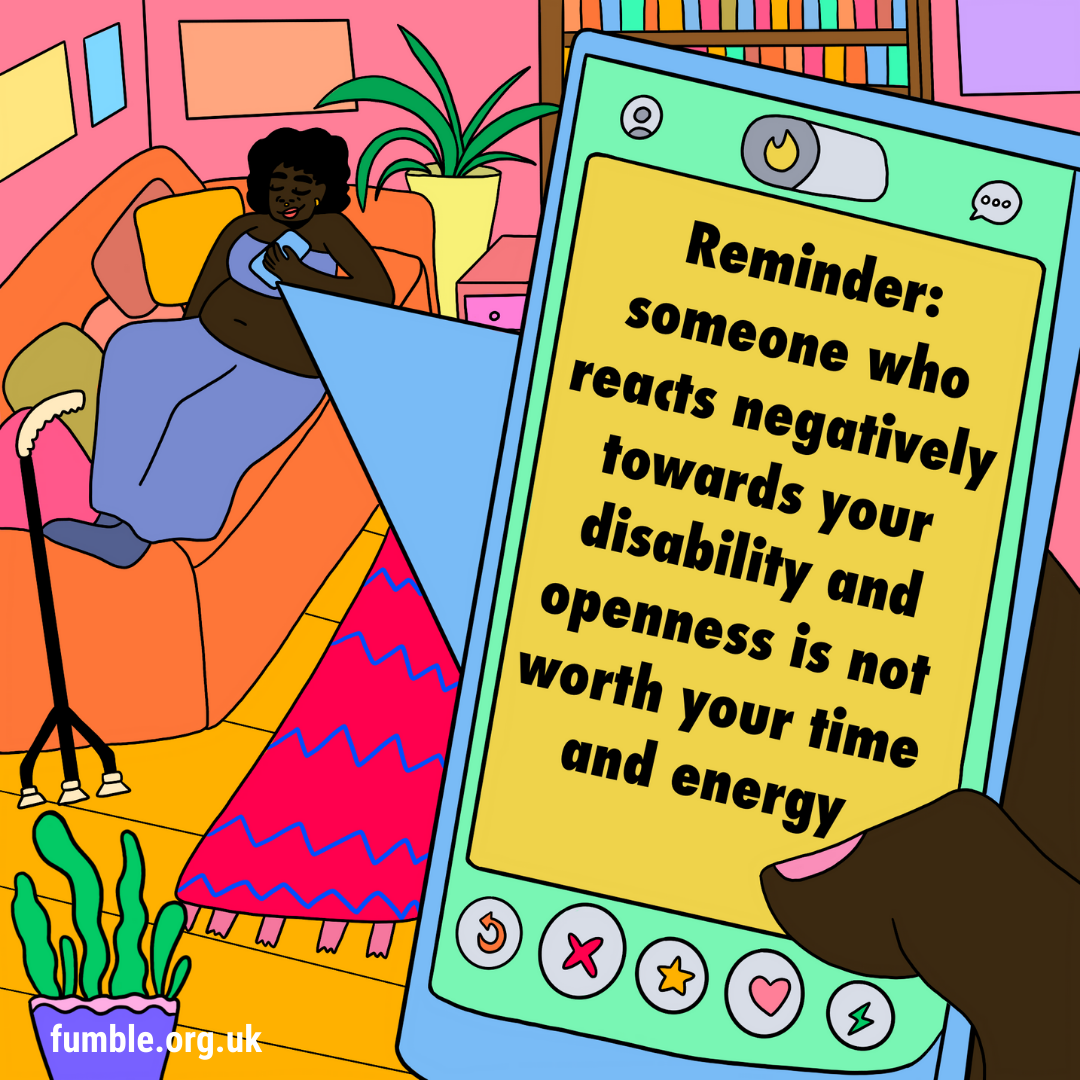
It isn’t easy to share your disability with a person you’ve only spoken to online. There isn’t a one size fits all guide. Not everyone needs to nor wants to share about their disability before meeting in person, and that’s absolutely fine too!
For me, I like to share my disability ahead of meeting up. Doing so means I can avoid spending a date (whenever Covid might finally allow one…) worried about the next set of stairs, or lying to get my date to help me off the ground. If you feel you want to share your disability with prospective partners but you aren’t sure where to start, here are four pointers from my experience.
1. Let it be authentic
As you get to know someone new and see potential in them as a partner, the conversations will inevitably become deeper and more personal. These chats are usually a great opportunity to mention your disability.
Be clear about what your disability is, but most importantly about how it affects you. This is especially important if you have a condition that is not well known – like mine. For example, I would explain that my disability means I am slower climbing stairs and unable to carry heavy things.
2. Positivity
You’re already brave enough to get ‘out there’ into the dating scene (from the comforts of your own home). Your outlook on disability can be important in shaping your date’s outlook too. By keeping it simple and positive, you’ll allow them to view the conversation positively as well. You may have bad days related to your disability or mental health, so it might be good to avoid the conversation on those days, to not be too self-critical and avoid upsetting yourself further.
3. Questions are good!
If they want to know more, try to be willing to answer their questions. Sensible questions are actually a great sign and show they’re interested in you, are keen to understand your disability and possibly figure out what their role in supporting you could be. Your honesty will be greatly appreciated.
4. Say when you want to move on
Speaking about your disability can be emotionally draining no matter how positive you usually are about it. If you’re feeling down and like you’ve explained enough for now, let them know that you want to move on. If all goes well, there will be plenty of conversations and opportunities to speak about it. Don’t feel like you need to unload every single detail all at once – it’s your condition and it’s up to you how much you are comfortable to share with this new person.
It’s both important to accept your disability as part of your identity, while recognising that it doesn’t define you. There are many different reasons that a budding relationship online may not work out, so you shouldn’t assume that your disability will be the reason that drives someone away.
If a person does react negatively to your disability and doesn’t appreciate your openness then they are not worth your valuable time and energy. This stands no matter how similar they may look to your celebrity crush!
You should never settle until you have found a partner who will respect you and who makes dating fun, whether it be online or in person.
Discover Fumble’s pandemic support series
The pandemic has had a huge impact on all of our lives, and we’ve all struggled to adapt to the changes that continue to happen all around us.
Our pandemic support series explores young people’s experiences of COVID-19, and helps you start to make sense of the chaotic and uncertain time we’re living in. Discover the full series here.
Other support
If you need more support right now, here are some of our favourite places to start:
- 6 Places To Find Mental Health Support In The Pandemic
- LGBTQ+ counselling services
- Youth Access, to find local counselling for young people aged 12-25
- The Mix, get support via 1-to1 webchat, email or counselling
- Mind
- NHS latest Coronavirus advice
- The government’s latest Coronavirus guidelines
- YoungMinds pandemic support
Read more
Last reviewed 17 August 2022
Image Credit: Gabby K via Pexels


